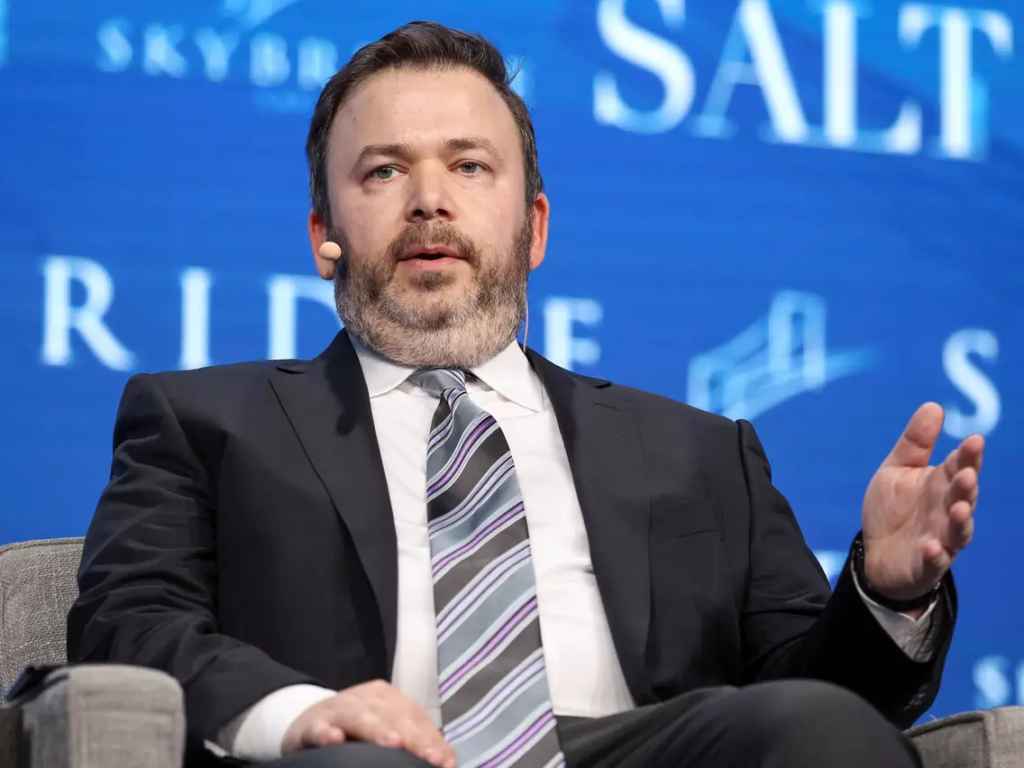
Hedge fund manager highlights the investment potential of niche mutual funds
Renowned hedge fund manager Boaz Weinstein has been making waves in the world of finance by promoting discounted closed-end funds and associating them with high-profile figures such as Taylor Swift and Warren Buffett. Despite their relatively obscure status on Wall Street, Weinstein has successfully raised the profile of these niche mutual funds, capturing the attention of investors and enthusiasts alike.
In a recent tweet, Weinstein, the founder of Saba Capital Management, revealed an intriguing connection with Taylor Swift, stating, “Did you know that @taylorswift13 invests in discounted closed-end funds? You think I’m kidding, but her father Scott told me so!” By aligning these funds with a global pop icon like Swift, Weinstein aims to bring attention to an investment avenue that often goes unnoticed.
Weinstein further emphasized the potential of discounted closed-end funds during an interview with Bloomberg. He disclosed that legendary investor and Berkshire Hathaway CEO, Warren Buffett, had shared a list of his investments from 1950, prior to taking Benjamin Graham’s class. Weinstein revealed that a significant portion of Buffett’s holdings at that time consisted of discounted closed-end funds. By highlighting Buffett’s historical interest in these funds, Weinstein seeks to reinforce their credibility and investment value.
Additionally, Weinstein drew parallels to Elon Musk, the CEO of Tesla and SpaceX, and his takeover of Twitter. While discussing his preference for closed-end fund arbitrage, Weinstein pointed out that investors need not rely on external factors like a high-profile acquisition for success. Unlike merger arbitrage or capital-structure arbitrage, which are dependent on specific events or company behavior, closed-end fund arbitrage provides investors with more control over their investments. Weinstein explained that the discount in a closed-end fund’s stock price can be eliminated through various strategic measures, such as board overhauls, fund conversions, share tenders, or even liquidation.
Saba Capital Management, under Weinstein’s leadership, actively engages in influencing closed-end funds managed by industry giants like BlackRock. These funds issue shares to raise capital, and if their shares are priced below the net value of their assets (NAV), they are considered “discounted.” Weinstein’s firm employs activist strategies to maximize returns on these undervalued assets.
The esoteric nature of discounted closed-end funds often makes it challenging to generate widespread interest. However, Weinstein’s clever association with respected figures like Buffett and Swift, as well as his reference to investment genius Ed Thorp, has garnered attention within the finance community. Weinstein highlighted that closed-end funds can be hedged with underlying exposures, similar to the techniques employed by Ed Thorp in the 1980s. He also emphasized that Warren Buffett recognized the value of these funds and held them outright when he considered them to be attractively priced.
By leveraging the star power of Taylor Swift, the investment acumen of Warren Buffett, and the innovative approach of Elon Musk, Boaz Weinstein has successfully brought discounted closed-end funds into the spotlight. As more investors become aware of the unique advantages and potential returns offered by these funds, it remains to be seen whether they will emerge as a popular choice among the financial community seeking diversification and superior investment opportunities.






